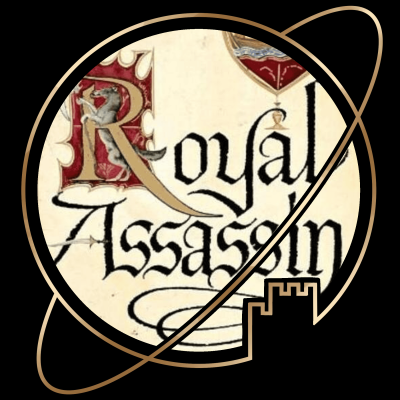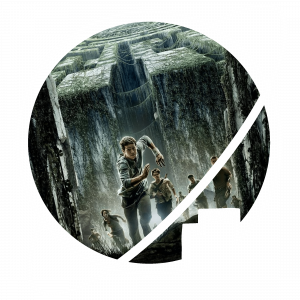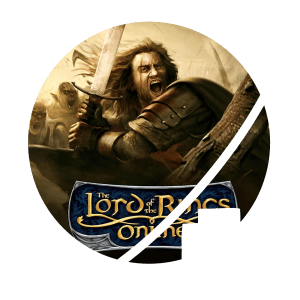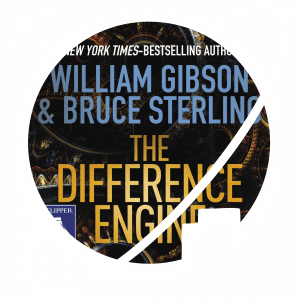Welcome to the Escape Velocity Collection!
We are an opinionated group of friends reviewing all sorts of fantasy and science fiction media. Don’t forget to get to know the curators and visit our curated Collection, where we discuss the stories that never cease to transport us to another world.
Will you escape with us?
LATEST POSTS:
- Book written by Robin Hobb
- Published in 1996
- Part 2 of the Farseer Trilogy
- Second part of the Realm of the Elderlings Series
As Fitz recovers from his mission to the Mountain Kingdom, he soon discovers there’s no escaping from Buckkeep politics. With the arrival of Princess Kettricken, the ongoing war with the Red Ship Raiders, and Prince Regal’s dubious machinations, Fitz’s aid is needed more than ever.
Fitz still dreams of a more ordinary life, but can he ever truly escape his duties as a royal assassin?

It’s somewhat a habit of me to like the second part of a trilogy the best, and the same goes for Royal Assassin. This book takes all of the build-up in Assassin’s Apprentice and takes it up a notch. We also learn more about familiar characters such as Burrich, Patience and Kettricken, and are thoroughly blessed with the arrival of new characters such as Nighteyes. Fitz is growing up, the war with the Red-Ship Raiders is getting uglier, and all the stakes get higher.
If you enjoyed Assassin’s Apprentice, Royal Assassin will give you a thrilling continuation of Fitz’s story!
Tagged:
- Audio drama written by Eli Barraza
- Produced by The Whisperforge
- Released in 2017-present
- Starring Eli Barraza, Danielle Shemaiah, Noah Gildermaster, José Donado, and others
Peri (short for Hesperia) is an agoraphobic young woman whose home starts to show up in a new location every day. She forces herself outside in search of her missing brother and has small adventures everywhere she goes.
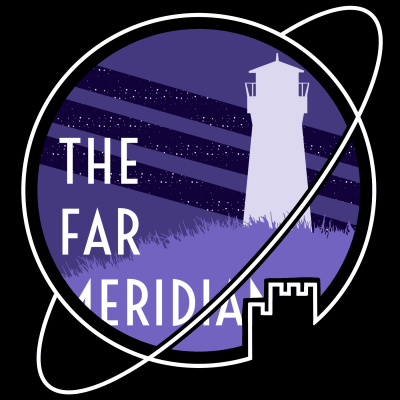

If I would have to summarize this audio drama in one word, it would be ‘delicate’. It is a wonderful experience to follow Peri in her surreal world. Every place and every person you meet is dreamlike and real at the same time. They are normal, but just off. In addition to the writing, the music and sound design help to create that feel of the mundane with a hint of magic. They are beautifully interwoven with the writing; subtle when it needs to be, powerful when the story reaches an emotional climax.
Peri is a kind, but hesitant hero. She is anxious and really does not want to go outside, meet new people and discover new places, but she has to. We follow and feel her struggles. She is constantly thinking and debating with herself, talking herself up at one moment and desperate at the other. Her (and other) mental struggles are also outwardly projected on the places and persons she comes across. The adventures are metaphors for how we cope with things such as exclusion, self-doubt, identity or depression.
During the first season, we see Peri grow as a person. In the second season she has accumulated enough confidence to extend that growth to others. Now she has the strength to confront the real issues lying underneath her fears and makes a visit to the past. I am really looking forward to what the third and final season will bring!
Tagged:
- Audio drama written by Christof Laputka
- Produced by Leviathan Audio Production
- Released in 2008-2013, 2020
- Starring Elizabeth Craynon, Tom Falcone, Jon Freda, Matthew Shale, J.P. Higgins, Adam Saul Bloch, Cynthia Pierce, Max Vogler and others
The grandmother of young genetic scientist Macallan Orsel is sick. Why? Well, that’s complicated, as Macallan soon finds out: her family is part of a group of immortals. Or at least they were, until a mysterious force started to threaten all immortals’ lives. And what’s more, Macallan seems to be the chosen one to fix it. She gets quickly entangled in a political and violent game between immortal rivalries and an American intelligence agency called The Blackdoor Group. If Macallan wants any chance to to save her grandmother – and the world – she needs to go to the headquarters of the immortals, Leviathan, hidden deep under the ocean.
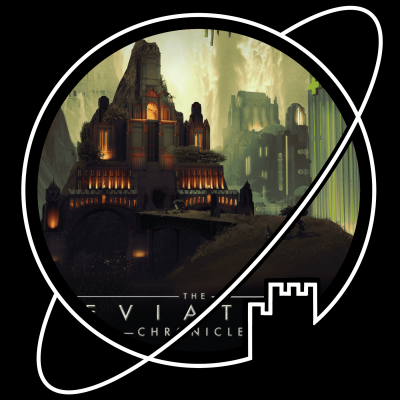

I think I listened to what has become the first ‘season’ of The Leviathan Chronicles around 2016, when the first episodes were already relatively old for a relatively new medium. But after episode 25 it just stopped. I was furious: did I pour my soul and all that time in a half-finished story? Agitatedly I googled what happened. I found a facebook post from just a month prior. The first post after years of silence. Production of the show had stopped because the wife of the maker got cancer. His passion project had to make way, of course. She passed away. My heart stopped. I was no longer furious. I only hoped he would finish his story. And he did. In 2020 he released the final episodes.
Despite that tragic and beautiful making-of story, The Leviathan Chronicles is not my favourite show. The acting is alright, the characters are fine, the story has an original enough premisse. But I wouldn’t call it layered with deep meaning or emotionally devastating. What it is, though, is fun. The Leviathan Chronicles is an adventure action movie, with chase sequences, gun fights, exotic locations and romance because, you know, a man and a woman were in the same place. Not your usual audio drama style, and I can appreciate that.
Will the story of this audio drama stick with me? No. Did I have fun? Yes.
Tagged:
- Audio drama written by Alexander Aldea and Adrienne Schaffler
- Produced by The Paragon Collective
- Released in 2020
- Starring Logan Browning, Carla Gugino, Mamoudou Athie, Keith David, Giancarlo Esposito, Constance Zimmer, Donnell Rawlings and Kenny Allen
The worst climate predictions have come true and the earth has become inhabitable due to high levels of carbon emissions. Only 80 percent of humanity is saved in an underground safe place, chosen for their score in a mysterious point system on the basis of their ‘usefulness’. The rest of humanity was ‘sorted out’. In this place we follow Hannah Ori, who gets involved in the development of The Oyster, a virtual Nirvana. Participants in the development quickly get addicted to this world of bliss. But perhaps, that is the point?
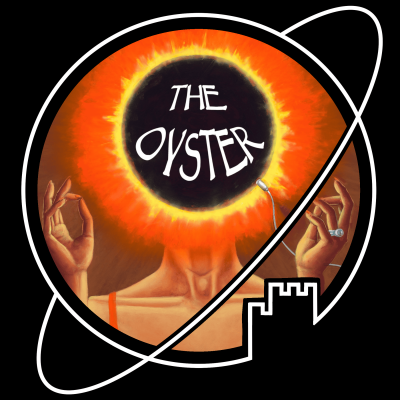

This review relates to the first season
I absolutely loved this audio drama podcast. I think it is the first cli-fi media I have consumed and it struck a chord with me. Post-apocalyptic has already been my jam, add climate change and technology-abuse to the mix and I’m all in.
But that’s not all. The podcast drew me into its world, introducing each element step by step, so you keep discovering more goings-on (sometimes alongside the protaganist). It discusses issues of race, class, and gender in a society where your worth is determined by your direct benefit to others.
In addition, it has excellent voice acting. And did I hear some influences on the sound design of horror podcast Darkest Night? At least I felt the same tingling of the spine when the theme of ministry leader Dolos Devlet sounded and I had to wait with fear and trepidation on his deep voice entering the conversation. Never a good sign.
I really hope there will be a next season that matches the quality of the first and lands the story capably after its last plot twist.
Tagged:
- Audio drama written by Mark Brooks
- Produced by Ear Epic Production
- Released in 2018-2019
Jöseph is a bounty hunter and top of his class – he thinks, anyway. He takes on a new task, but when it appears the money is not going to be worth it, he hesitates. Finally, his heart prevails and he takes on his most dangerous bounty contract yet: tracking down an evil terrorist named Opus, who is kidnapping more and more innocent civilians of the city of Polaris. Using his exo-skeleton tech called Auto-Machs Opus is planning to exact his final revenge – and Jöseph is the only one who can stop him.
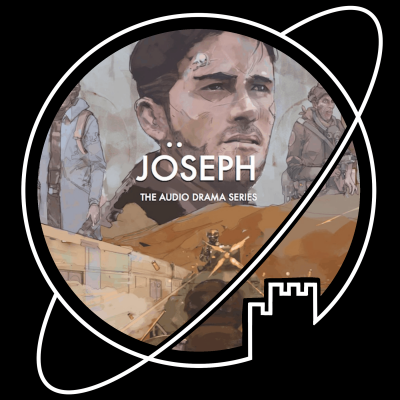

What a spectacle! If you ever wondered how a superhero movie would be if it was an audio drama; this is it. Joseph uses an impressive cinematic audioscape – although overwhelming at times. You feel like the space ships are flying just past your ears and you have to duck for the bullets.
So I can appreciate the audio design, but storywise… it is not my piece of cake. I was hyped when I heard the trailer(s), but it appears that this short sequence was the complete emotional core.The plot is straightforward: egocentric bounty hunter teams up with some nice people to solve a mystery and save a bunch of kidnap victims. The dialogue is snappy. Characters are clichés. Acting was alright.
Conclusion: well produced, not my kind of story.
Tagged:
- Audio drama written and produced by A.R. Olivieri
- Released in 2019-present
- Starring Leslie Gideon and others
A high-school student stumbles upon an ancient curse that grants immorality, but there’s a catch: every full moon she must kill someone – anyone – or she’ll die. It doesn’t take long before she is watched with suspicion by friends, family and the police.
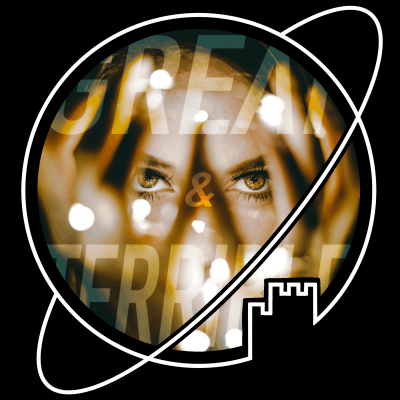

Great & Terrible is a podcast in A.R. Olivieri’s characteristic style of super short episodes. The episodes alternate between poetic reflection and progress of the story.
For me, it is not the best Olivieri-podcast. I quite liked the contained stories of 2298 and The Easiest of All the Hard Things, but this one is too slow for me. I have the feeling it is less suitable to be told in snippets, because every time I lose track of where we are in the story. And then I remember: ‘Oh, we are still doing this.’ In addition, I don’t really like the main character and since her telling is 90% of the story… The ‘poetic reflection episodes’ are nice though, although I do regularly catch my thoughts wandering off while listening.
Yet, I keep coming back. It is still entertaining and I want to know how it ends. If it ends. And for 3 minutes each time, I can’t really not listen, can I?
See also:
Tagged:
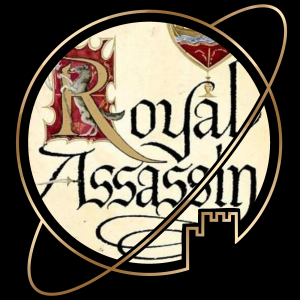
Review: Royal Assassin – Robin Hobb
Part two of the Farseer Trilogy. As Fitz recovers from his mission to the Mountain Kingdom, he soon discovers there’s no escaping from Buckkeep politics.
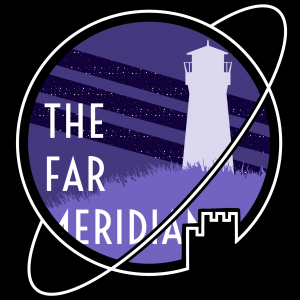
Review: The Far Meridian – The Whisperforge
Peri is an agoraphobic young woman whose home starts to show up in a new location every day. She forces herself outside in search of her missing brother.
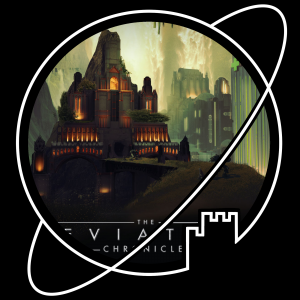
Review: The Leviathan Chronicles – Leviathan Audio Production
Macallan Orsel finds out she and her family are part of a group of immortals. Or at least they were, until a mysterious force started to threaten all immortals’ lives. Macallan seems to be the chosen one to fix it.
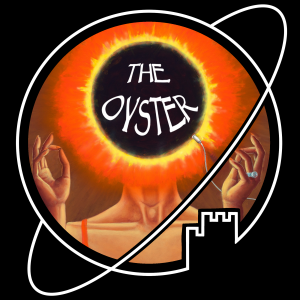
Review: The Oyster – The Paragon Collective
In a post-apocalyptic cli-fi world we follow Hannah Ori, who gets involved in the development of The Oyster, a virtual Nirvana.
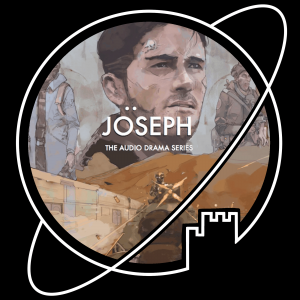
Review: Jöseph. The Revenge of Opus – Ear Epic Production
Jöseph is a bounty hunter and top of his class – he thinks, anyway. He takes on his most dangerous bounty contract yet: tracking down an evil terrorist named Opus, who is kidnapping innocent civilians of the city of Polaris.
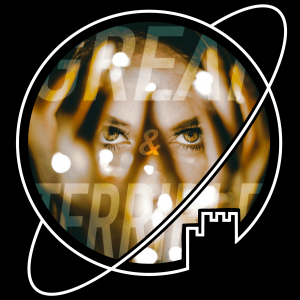
Review: Great & Terrible – A.R. Olivieri
A high-school student stumbles upon an ancient curse that grants immorality, but there’s a catch: every full moon she must kill someone.









